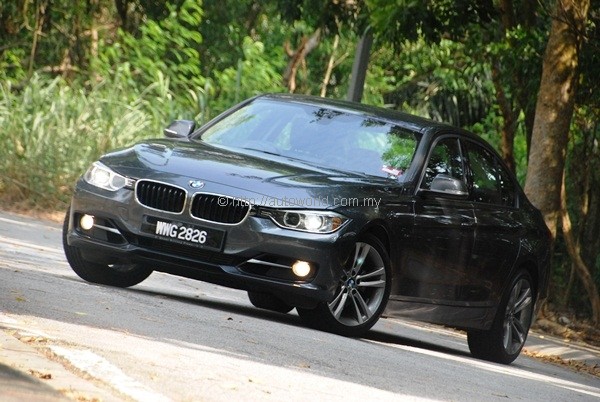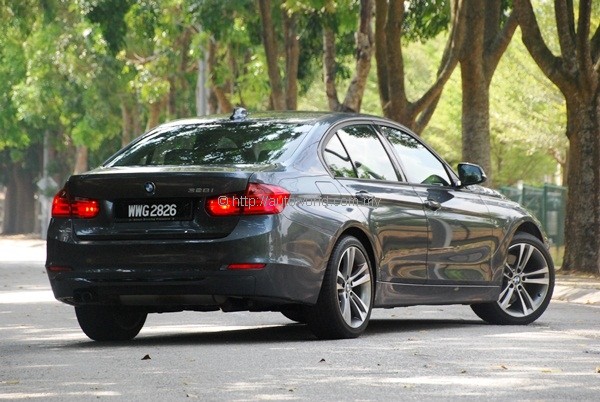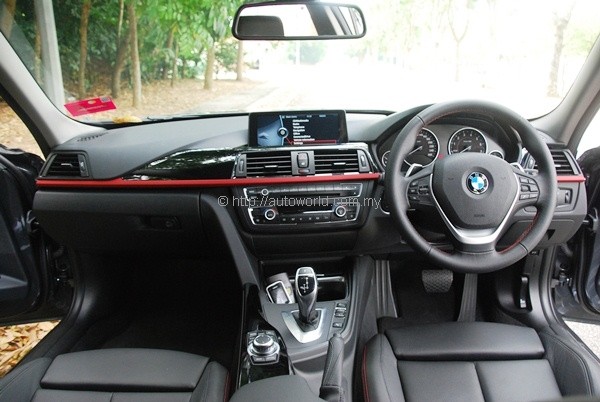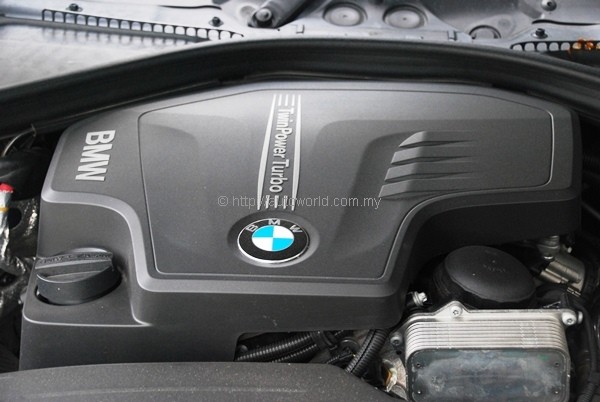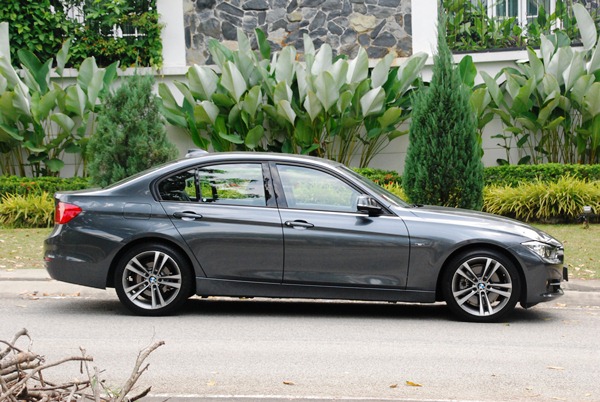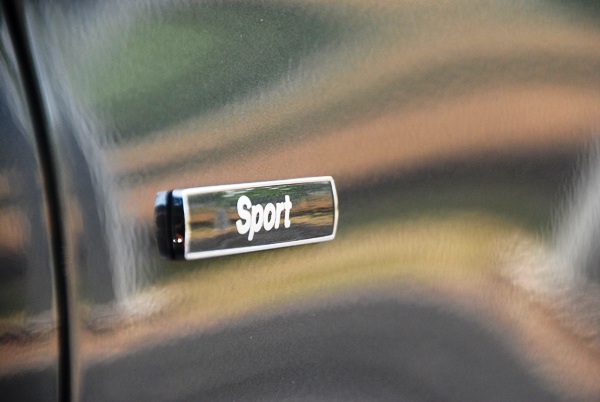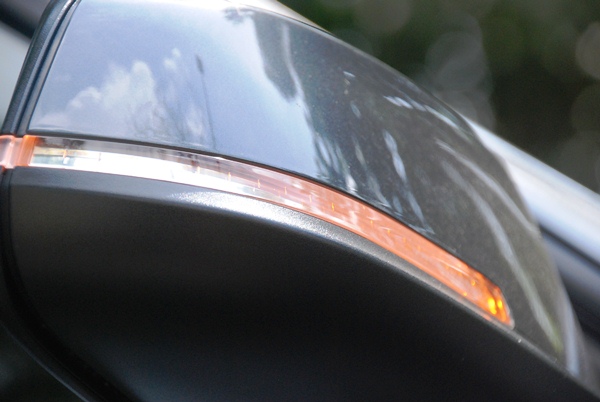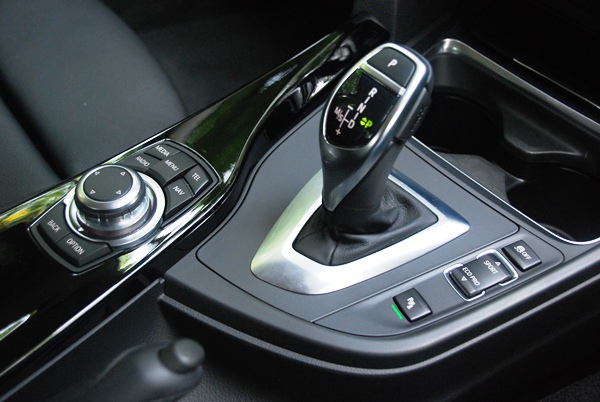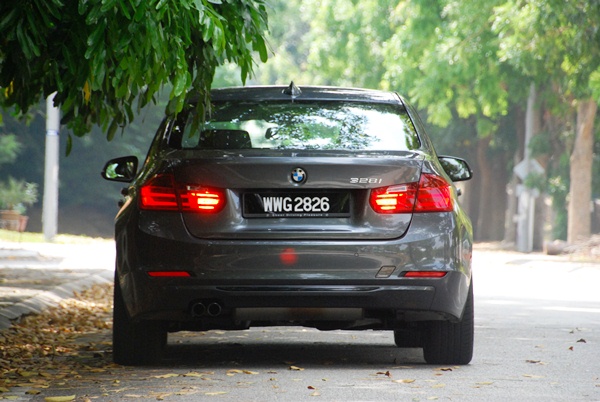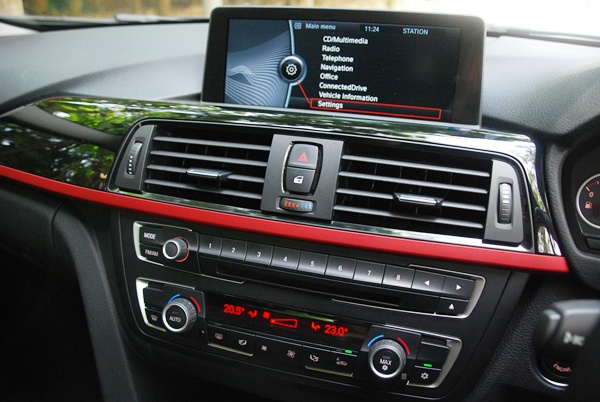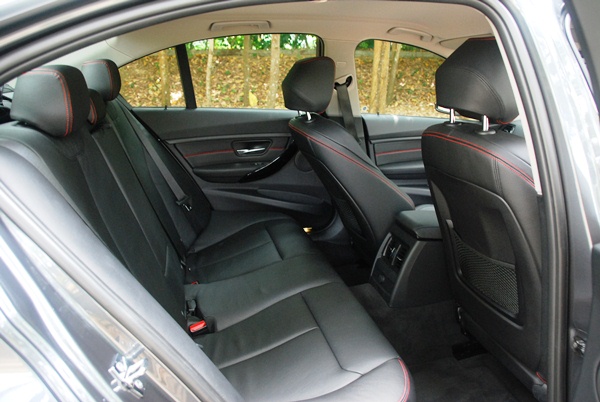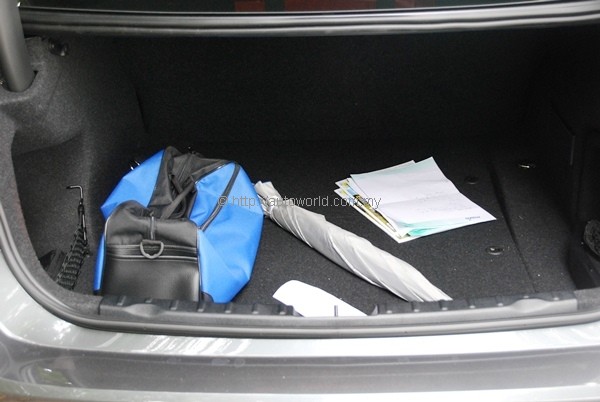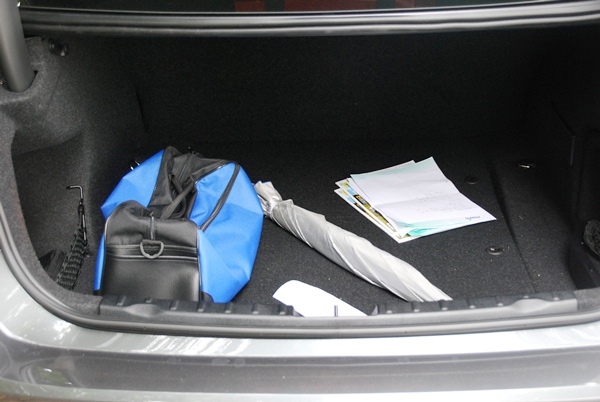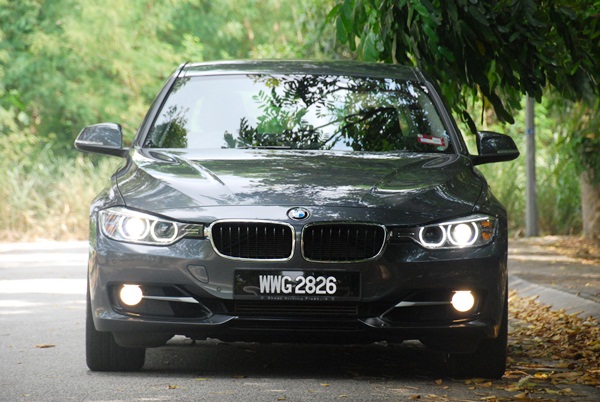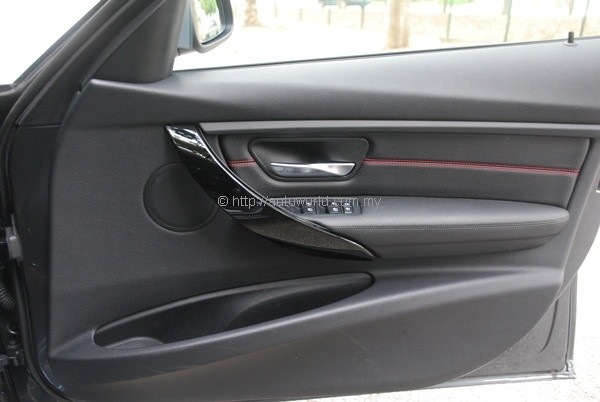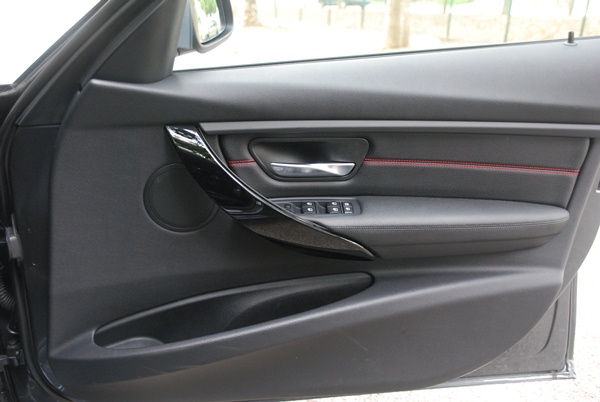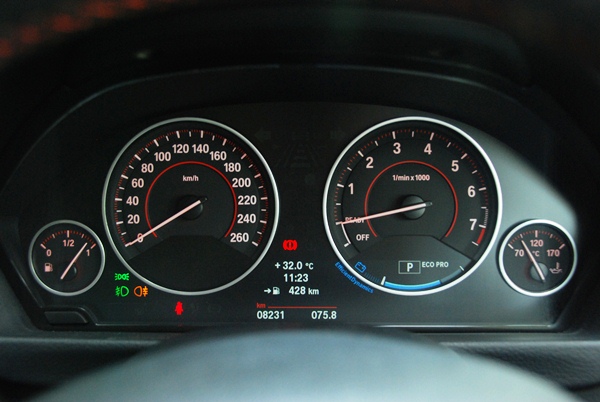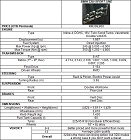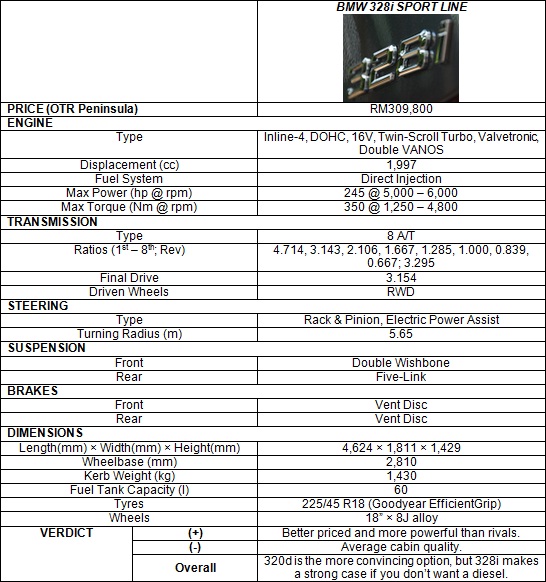BMW 328i (F30) Test Drive Report
We had just reviewed the all-new BMW F30 3 Series in its most basic 320d guise last month, and to recap, our conclusion then was that the car is a significant improvement over the previous E90 model. The diesel engine, carried over from its predecessor, continues to impress with an amazing combination of power and economy.
The new F30 also rides more pliantly than the E90, especially against those that were kitted with M Sport suspensions, but body control is understandably not as sharp. It is a more pleasant prospect as a day-to-day vehicle than its predecessor, but one area where BMW really fell short with the F30 was its interior. No doubt its design is significantly improved over the E90, but choice of materials remain below par when stacked against its rivals, and, to be honest, the 320d felt rather stingy in terms of equipment.
Our review today takes us slightly higher up the food chain as we feature the F30 in its mid-range 328i guise, which offers better equipment and trim line options for the customer. It still uses a 2.0-litre turbo engine like the 320d, but this one’s fueled by petrol and thus, it pulls a few more revs. So, does this costlier model make for a better driving and ownership experience?
 |
The Test Car
Our 328i test car featured in this review is a fully imported unit priced at RM309,800 on-the-road before insurance. As we publish this article, however, BMW has moved on to selling the 320d and 328i in locally-assembled SKD format, priced at RM248,800 and RM289,800 respectively. If the Sport Line trim of our test car seems over the top for you, your other option, as far as the 328i is concerned, would be Luxury Line trim.
However, don’t let the ‘Sport Line’ label confuse you into thinking that this is an M Sport option. This is slightly more docile, and touches that differentiate it from other trim variants of the 3 Series are more cosmetic than dynamic. You have a subtle ‘Sport’ badge plastered on each front fender, and the 18″ star-spoke alloy wheels are aggressively styled. This car also runs on a standard suspension setup – no M Sport springs and dampers here.
The most obvious ‘Sport Line’ touch, however, is inside, and you really can’t miss it – that Coral Red line that runs across the dashboard accompanied by red stitching and red markings on the instrument cluster. The overall effect of this touch would probably appear too garish for buyers with more matured tastes, but it has to be noted that choice of cabin materials seemed to feel better to the touch in our 328i test car compared to the 320d which we reviewed last month.
 |
| 328i gets a proper iDrive. Red dashboard trim of Sport Line may not be to everyone’s taste. |
Specs
Powering the 328i is the increasingly familiar 2.0-litre N20B20 turbocharged four-cylinder engine introduced earlier this year in the 5 Series. For now, the F30 gets this engine only in its most potent 245hp format, which spreads peak power output from 5,000 to 6,500rpm and twisting out 350Nm of torque from 1,250 to 4,800rpm. Its 8-speed automatic transmission has the same ratios as the 320d, but comes with the added benefit of paddle shifters.
Another advantage that the 328i boasts over its diesel-powered sibling is a variable steering rack and more advanced connectivity functions on its iDrive system. The central screen measures a bigger 8.8 inches (vs 6.5″ in the 320d), and features built-in satellite navigation, which is absent in the 320d. Beyond additional functions in its iDrive such as the BMW iPhone App and smartphone music interface, few items separate the 328i from the 320d in terms of equipment.
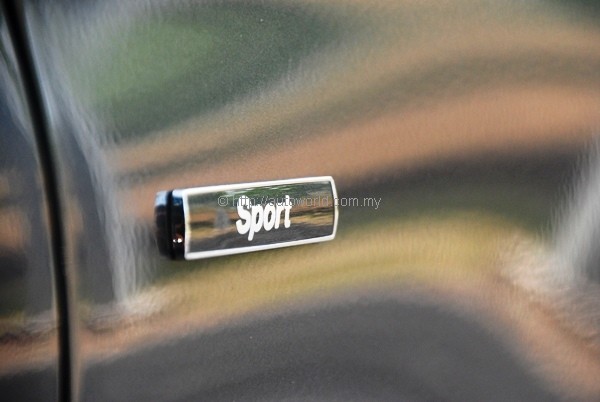 |
| Don’t confuse Sport Line with M Sport, they are different. |
The Drive
Whilst the cheaper 320d boasts superior torque and fuel economy, most Malaysian drivers will probably still prefer the 328i’s petrol engine, which does not sound like a truck when idling. Also, because a petrol engine is significantly lighter than a diesel motor, the 328i does not shake as violently as the 320d when the Auto Start/Stop system is in operation.
Another reality in the petrol vs diesel argument is that the former has a greater liking for revs, and for many enthusiast drivers, that quality still counts for something. No doubt that the new N20 engine revs with neither the lust nor smoothness of BMW’s naturally aspirated six-cylinder engines of old, but with a redline sitting as high as 7,000rpm, those of you who like the high-revving experience can still derive a lot of satisfaction from this car.
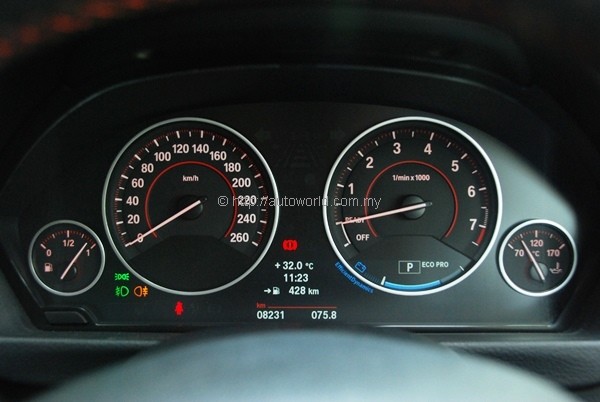 |
| Red line running along instrument panel another Sport Line touch. |
On the ride and handling front, the 328i also features the same standard suspension like the 320d, and that means no adaptive dampers, and alternating between the four modes on the Drive Experience Control switch does not alter ride and handling behaviour. So, like the 320d, the 328i feels noticeably more pliant and more comfortable the old 325i M Sport, but with a slight sacrifice in body control tightness.
It’s still pretty competent, however, and is more than good enough for you to string together a series of corners with great precision. The new electric steering rack steers quickly enough, and gives pleasant amounts of feedback. In a hypothetical shootout against its rivals, we still foresee (but not concluding just yet) BMW comfortably taking the spoils as far as driving dynamics are concerned.
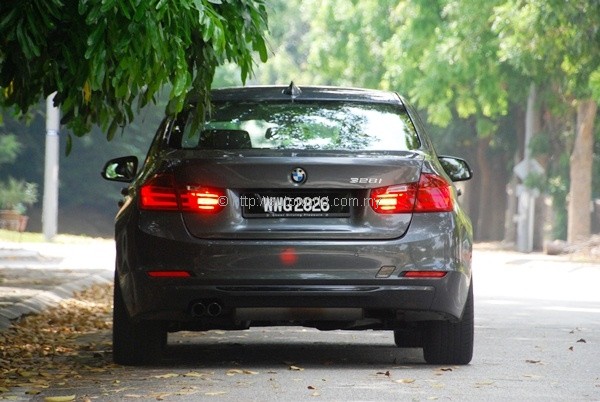 |
Verdict
At its price of RM289,900, the 328i undercuts both of its key rivals, namely the Mercedes C 250 (RM290,888) and Audi A4 quattro (RM309,800). The BMW also overshadows both its rivals in the power stakes, though the Audi can justify its pricing premium with its all-wheel drive system and better-appointed interior.
If you’re looking to get yourself a brand new BMW 3 Series, it is the entry level 320d that ultimately delivers the more satisfying driving experience compared its petrol sibling. The 328i’s balance in performance and economy is decent, but not as strong as the 320d’s. The 328i will nevertheless make a strong case for those who either does not want a diesel or have higher requirements for kit count.
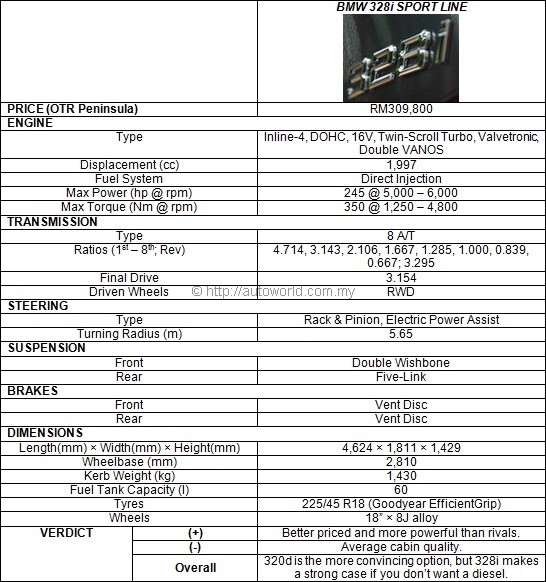 |




